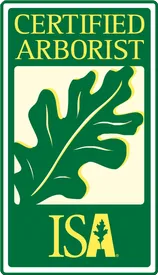Did you know that the trees on your property can affect the health and wellbeing of your pets? Many pet-owners don’t know that there are several types of trees that are toxic to pets, causing everything from gastrointestinal issues to severe breathing problems. Protect the health of your furry friends by removing toxic trees from your Loveland, CO property. Read on to learn about the most common species to look out for.
Oak trees
Since oak is one of the most common species of tree throughout Loveland, CO and the country as a whole, it may come as a surprise that they’re also one of the most toxic trees for pets. The major problem with these trees is the acorns—they contain tannic acid, which causes gastrointestinal problems in horses, dogs and cats. If ingested in large amounts, there’s a risk for severe gastrointestinal irritation in horses and mild to moderate gastrointestinal upset in dogs and cats. There’s also a risk of mechanical irritation from the sharp fragments of the acorn. It’s hard for your pets to resist the temptation of a tasty acorn snack—remove these trees to protect the health of your companion.
Red maple trees
It’s still unknown what element in red maple trees causes problems with pets, but there are a whole host of problems that arise when your furry friend ingests red maple leaves. When the leaves enter the digestive system of a dog, cat or horse, they can impair red blood cell function and cause abdominal pain. Red maple leaves are especially bad for horses, and can even lead to death. If you have red maple trees on your property, it’s best to have them removed.
Black walnut trees
These trees produce nuts that aren’t necessarily toxic on their own—it’s the mold growth on the nuts that can be harmful to animals, including horses and dogs. If your pet ingests black walnuts hat are covered with toxic mold, they can experience anorexia, increased heart rate, respiratory issues, mild colic and much more. Be cautious and remove black walnut trees to avoid these issues.
Cherry trees
The twigs and leaves produced by the cherry tree can be fatal to dogs and cats when eaten. They contain gallotannin or cyanogenic glycosides, which cause breathing problems and shock in animals. There are other trees that contain cyanide, including apricot, peach and plum trees. If your dog, cat or horse ingests stems, leaves or seeds, especially during the process of wilting, they will likely have a very negative reaction. Keep your pets far away from these trees, and remove them if possible.
All pet owners want the best for their furry friends, which is why removing toxic trees from your Loveland, CO property is a job you can’t afford not to do. A professional tree removal service can help you rid your property of these troublesome trees safely and efficiently. Contact Rocky Mountain Tree Service today to learn more about potentially toxic trees and how to safely remove them.

